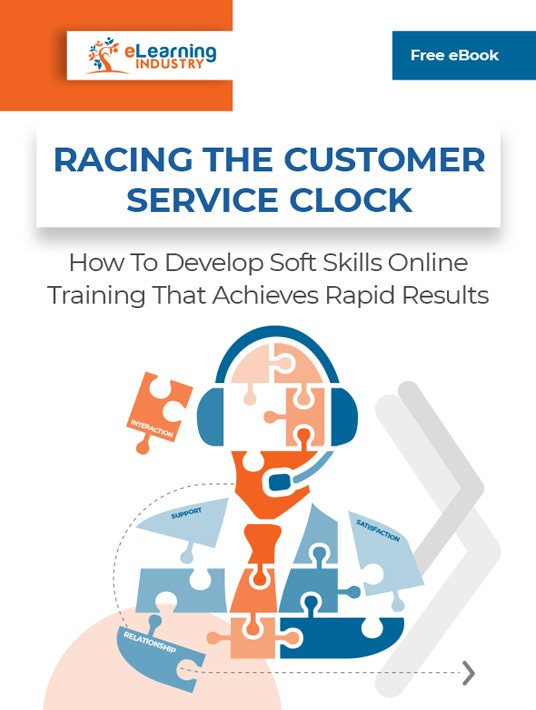Preventing Soft Skills Online Training Mistakes
Soft skills are fundamental on-the-job, regardless of where staffers are in the employment cycle. They help maintain open lines of communication, build a better team dynamic, and boost customer service scores. However, staffers must hone these skills through practical application and frequent reinforcement. Does your current soft skills online course make it easy for employees to master these vital talents? Or are you making some grave mistakes that could increase compliance violations and employee turnover? Errors are inevitable, but here are 8 soft skills online training mistakes you should avoid at all costs when implementing soft skills online training.

1. Forgetting About The Practical Application
Soft skills are based on real-world applications. It's difficult to hone these abilities without practicing them. As such, your online training program must have simulations, scenarios, and other immersive activities that facilitate experiential learning. Employees are able to benefit from their mistakes and continually improve their skills. Then use this wisdom in the workplace to enhance service scores. Skill-based online training should never be limited to passive activities and final exams to 'prove' their proficiency.
2. Focusing On Irrelevant Skills
It's crucial to include secondary abilities because they allow employees to dive deeper into the skill. For example, communication skills are comprised of active listening, nonverbal communication, etc. However, irrelevant competencies are a different story. Employees only have so much time to train. Thus, they're looking for skill-building resources that pertain to job duties, roles, and everyday challenges. Not abilities they may need down the line to land that big promotion. They can always address these areas for improvement during their free time.
3. Not Getting Employee Feedback
Employees are the only ones who can tell you which skills they need on the job and where they fall short. Of course, you can obtain this information in a variety of ways. From qualitative assessments to surveys. Whatever method you choose, it's vital to collect feedback directly from the source. Then chart patterns to develop customized online training tools. For instance, 75% of your employees note the same communication or problem-solving skill gap.
4. Lack Of A Realistic Budget
You only have so many resources to devote to your soft skills online course. Thus, one of the most significant soft skills online training mistakes is the lack of a realistic budget. This leads to misallocation of resources and shortcuts that reduce online training value. For instance, you realize that there aren't enough funds to finish your interactive simulation. So, you shorten the seat time and omit that vital real-world experience. You must also inventory your current assets to look for reusable content. That webinar from last year might help you cut costs today. Especially if you have a rapid eLearning authoring tool to edit the footage and add images.
5. Not Incorporating Peer-Based Support
There are 2 primary reasons to integrate peer-based support into your soft skills online training course. The first is to reduce costs. You don't have to develop as many support resources thanks to peer coaching and employee contributions. Secondly—and more importantly—you facilitate knowledge sharing within your organization. Employees learn how to hone their skills through peer-to-peer interactions. For instance, an experienced staffer hosts live events, that focus on interpersonal abilities or negotiation skills. Social media groups, forums, and live Q&As are other great ways to incorporate peer support into your strategy.
6. Overlooking The Importance Of Calculated Risk-Taking
I'm not referring to L&D risks. You can't afford to develop content without careful research, analysis, and data collection. I'm talking about employees taking calculated risks to learn from their mistakes and identify shortcomings. They must have the opportunity to see how their behaviors and actions lead to real-world consequences. How their lack of skills plays out in work-related scenarios. For instance, they're unable to seal the deal because they don't have enough compassion or can't communicate with the client. Online training allows them to take risks that lead to professional growth. Without having to worry about offending customers or letting their monthly sales figures slip.
7. No Follow-Up Or Refreshers
Skill development stops when the online course concludes. There's no follow-up support or memory refreshers to help employees continually cultivate their talents. Which means they remain stagnant. The secret to success is giving them personalized tools to bridge gaps on their own whenever the need arises. Such as online tutorials, video demos, and simulations that enable employees to diagnose areas for improvement and address them head-on.
8. No Internal Marketing
You have an impressive online training library. The trouble is, nobody knows about it. Internal marketing is crucial because it makes employees aware of the valuable resources they can rely on. Such as certification paths and microlearning activities. Launch a social media group to spread the word and update them about new resources. Turn staffers into training advocates who help their peers find relevant eLearning tools. Post weekly spotlights to the online training forum that draw their attention to skill-based online training gems. It's not enough to simply upload content to the forum and wait for employees to trickle in.
The most damaging mistake you can make is overlooking soft skills altogether. These talents should take center stage in online training because they serve as a basis for every task, process, and policy. Get employee feedback to determine which skills they lack and how to address the gap. For example, which activities do they prefer? How will they apply these skills on-the-job? Which JIT support tools do they need to refresh their mastery?
If you need to learn more about the importance of honing soft skills in the workplace, read our eBook Racing The Customer Service Clock: How To Develop Soft Skills Online Training That Achieves Rapid Results and find out all the benefits of investing in your employees' soft skills training.







